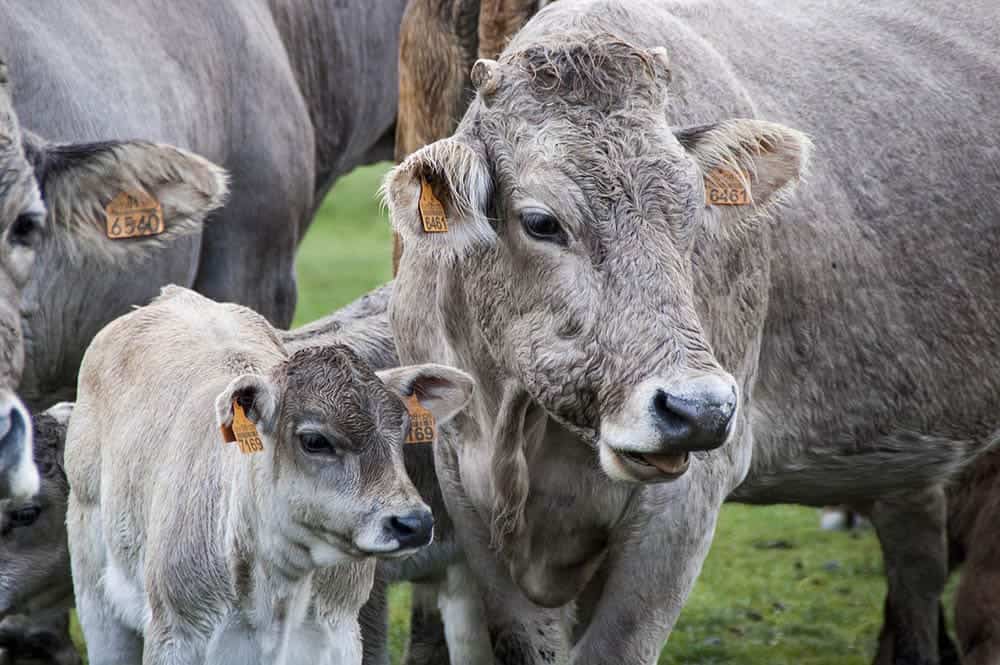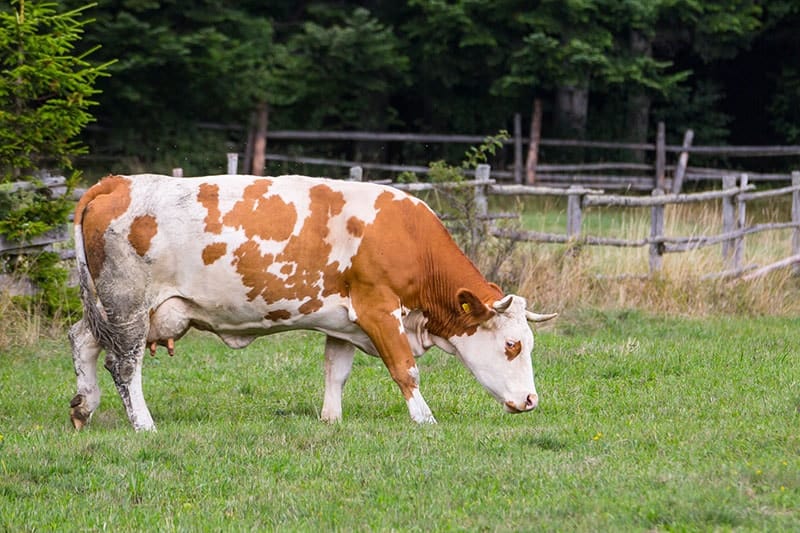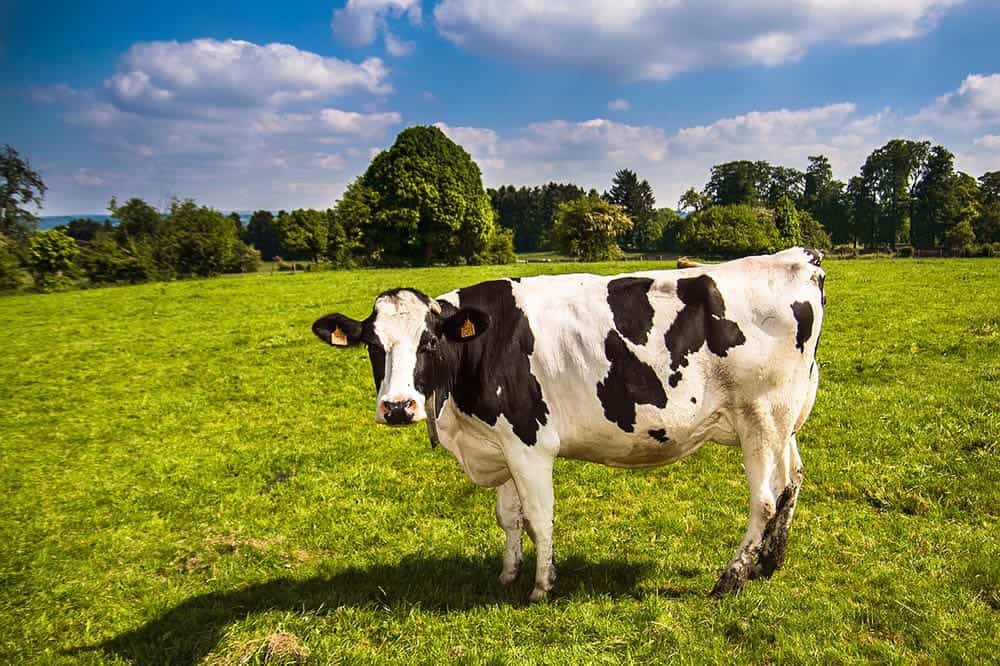Animal intelligence is difficult to measure and quantify, but we’ve certainly tried. Over the years, researchers have tested the intelligence of numerous animals, including dogs, monkeys, apes, dolphins, and octopuses.
Cows aren’t usually on the list, and people generally regard them as being simple-minded animals. New research indicates that cows may be way smarter than we give them credit for, thanks to work from an undergraduate student in Australia.

Are Cows Intelligent?
Alexandra Green, an undergraduate student at the University of Sydney, wanted to determine if cows were intelligent. Green developed a test to showcase cows’ cognitive abilities and found that cows could follow a sound through a maze to find food. This indicates that cows exhibit heightened decision-making abilities.
For the experiment, Green trained six cows to navigate a large maze that’s similar to those used for mice and rats. Cows were taught to follow sound through the maze to find their food.
In the end, four out of the six cows aced the test. The remaining two scored 75%. One cow finished its maze in under 20 seconds on the first day of learning it, which suggests that cows are not only intelligent, but that they display different intelligence levels between individuals in the species, just like us.
The results of this experiment have numerous implications for the cattle industry. Farmers may be able to use sound to train their cows for better efficiency. Individual cows may be able to learn different commands with different sounds as well.

Existing Research on Cow Intelligence
Though groundbreaking, Green’s experiment wasn’t the first of its kind. Daniel Weary, an applied animal biologist at the University of British Columbia, had been working with colleagues to improve the lives of dairy cattle. His studies have accomplished a lot, such as finding better ways to feed and shelter cows and teaching farmers to develop best practices.
Along with improving quality of life, Weary also learned that cows have a surprising intelligence level and emotional sensitivity. In 2014, he and his colleagues conducted studies to see how calves are affected by the emotional pain of separation from their mothers and the physical pain of dehorning. The study showed that cows develop a negative cognitive reaction that’s similar to pessimism.
They also found that cows housed in isolation are more likely to exhibit anxiety and perform poorly on intelligence and cognitive tests.
These findings have some interesting implications for the industry and how we currently treat cows raised for dairy and beef. In many cases, these animals are raised in poor conditions and in isolation. Now that we understand the impact, we may be able to create more humane living conditions for these animals that take their unique needs and cognitive abilities into account.


Conclusion
Though often considered simple, research into cows has shown remarkable intelligence, cognitive abilities, and emotional capacity. Cows experience a range of emotions and can be trained to complete complex tasks, which has significant implications for the practices and conditions of the cattle and dairy industries.
Next on your reading list:
- Why Are Cattle Dehorned? Is It Painful for Them?
- Is It Impossible For Cows To Go Downstairs? What You Need To Know!
Featured Image Credit: Pixabay
